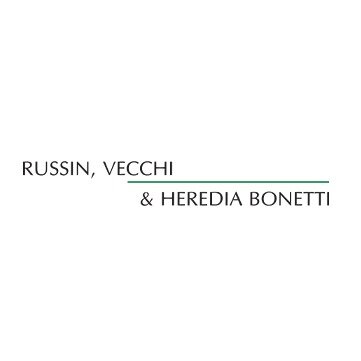Best Energy, Environment & ESG Lawyers in Santo Domingo Este
Share your needs with us, get contacted by law firms.
Free. Takes 2 min.
List of the best lawyers in Santo Domingo Este, Dominican Republic
About Energy, Environment & ESG Law in Santo Domingo Este, Dominican Republic
Energy, Environment, and ESG (Environmental, Social, and Governance) law is an essential legal field in Santo Domingo Este, Dominican Republic. This area of law regulates how energy is generated and consumed, how environmental resources are protected, and how businesses fulfill their social and ethical responsibilities. As the eastern part of the nation’s capital district, Santo Domingo Este is experiencing rapid economic and population growth, making compliance with these laws more important than ever for residents, businesses, and investors.
Laws governing energy and the environment in the Dominican Republic are influenced by both national statutes and international agreements. ESG considerations have become increasingly crucial as local and international stakeholders demand greater corporate responsibility. These laws help ensure sustainable development, protection of natural resources, climate change mitigation, and the ethical conduct of business.
Why You May Need a Lawyer
You may find yourself needing a lawyer specializing in energy, environment, and ESG law in several common situations in Santo Domingo Este:
- Applying for energy or environmental permits for new construction or business operations
- Addressing allegations or fines related to environmental violations
- Negotiating and drafting contracts for renewable energy projects such as solar or wind installations
- Ensuring business compliance with new or existing ESG regulations and international standards
- Managing land use disputes related to environmental protection or government zoning
- Handling cases of environmental damage or pollution cleanup responsibility
- Seeking incentives or subsidies for renewable energy projects
- Opposing or appealing administrative decisions made by environmental authorities
- Guiding corporations in disclosing ESG performance to investors or regulators
- Advising on real estate transactions where environmental risks may be present
Without sound legal guidance, individuals and businesses risk financial penalties, delays, reputational damage, or even criminal liability.
Local Laws Overview
Santo Domingo Este is subject to the national legal framework of the Dominican Republic, but there are municipal rules and enforcement practices to consider.
- Energy Law: The General Electricity Law (No. 125-01) governs the energy sector, encouraging investment in clean and renewable energy and establishing requirements for grid connection and distribution. The government also offers fiscal incentives for renewable energy projects.
- Environmental Law: The core statute is the General Law of Environment and Natural Resources (Law No. 64-00), which sets guidelines for pollution control, natural resource management, and environmental permitting. Certain areas in and around Santo Domingo Este may have special protection or restrictions.
- ESG Requirements: There are growing regulations requiring businesses-especially listed companies and those seeking investment-to disclose ESG-related information. The Securities Market Law and various sectoral guidelines encourage responsible governance, anti-corruption policies, and sustainability reporting.
- Municipal Regulations: The local Ayuntamiento (municipality) enforces zoning, waste management, and water usage rules that complement national standards.
- International Agreements: The Dominican Republic is a signatory to global accords on climate change, biodiversity, and sustainable development, which influence national policy and legal obligations.
Understanding how these layers of law interact is crucial for any project or business operating in Santo Domingo Este.
Frequently Asked Questions
What permits are needed for a renewable energy project in Santo Domingo Este?
Projects typically require an environmental impact assessment from the Ministry of Environment and Natural Resources, an operating license, and compliance with the General Electricity Law, plus municipal approvals for land use.
How are environmental regulations enforced locally?
The Ministry of Environment handles most enforcement, but local authorities may also inspect and sanction under municipal regulations, especially regarding waste disposal and zoning.
What should I do if I receive an environmental violation notice?
Consult with a qualified lawyer immediately. You may have the right to challenge the notice, negotiate fines, or present evidence of compliance.
Do local businesses have mandatory ESG reporting obligations?
While ESG disclosure is not mandatory for all businesses, listed companies and some regulated sectors must provide sustainability and governance information. There is a trend toward broader requirements in the future.
What incentives exist for investing in clean or renewable energy?
There are tax exemptions, accelerated depreciation, and import duty waivers for approved renewable energy projects, under Law 57-07 for Renewable Energy Incentives.
What environmental concerns are most significant in Santo Domingo Este?
Key concerns include urban expansion impacts, water pollution, waste management challenges, and protection of remaining green areas and coastal resources.
Can individuals file complaints about environmental damage?
Yes, any resident or community group can file a complaint with the Ministry of Environment or the local municipality to request investigation and remedial action.
How long does it take to obtain environmental permits?
Timeframes vary based on the project scope and administrative workload, but it typically takes several months. Preparation of complete documentation can help avoid delays.
Are environmental impact assessments always required?
Not for every project, but they are mandatory for developments that may affect water, soil, forests, or air quality, including most industrial, real estate, and energy projects.
What ESG factors are most scrutinized by Dominican authorities?
Common areas include corporate governance, anti-corruption measures, labor standards, environmental stewardship, and community engagement.
Additional Resources
- Ministry of Environment and Natural Resources (Ministerio de Medio Ambiente y Recursos Naturales): Main authority for environmental permits, regulations, and enforcement.
- National Energy Commission (Comisión Nacional de Energía): Regulates energy development, licensing, and incentives.
- Santo Domingo Este City Council (Ayuntamiento Santo Domingo Este): Local office for zoning, waste, and urban environmental issues.
- Environmental Prosecutor’s Office (Procuraduría Especializada para la Defensa del Medio Ambiente): Handles legal action against serious environmental offenses.
- Chamber of Commerce (Cámara de Comercio y Producción de Santo Domingo): Provides information on business compliance and ESG trends.
- NGOs and Environmental Groups: Such as Grupo Jaragua and Fundación Propagas, for education and advocacy.
Next Steps
If you need legal assistance in the field of energy, environment, or ESG in Santo Domingo Este, begin by identifying your specific issue or project requirements. Gather all relevant documents, project plans, or communications from authorities. Schedule a consultation with a licensed lawyer who specializes in this field, preferably one familiar with both national and municipal regulations in your area.
Be prepared to discuss your goals, any deadlines, and your current compliance status. A lawyer can guide you through required procedures, help you avoid costly mistakes, and represent you in dealings with authorities or other stakeholders. Keep records of all legal advice received and actions taken. Monitoring changes in local and national legislation is important, as the field of energy, environment, and ESG law is constantly evolving in the Dominican Republic.
Lawzana helps you find the best lawyers and law firms in Santo Domingo Este through a curated and pre-screened list of qualified legal professionals. Our platform offers rankings and detailed profiles of attorneys and law firms, allowing you to compare based on practice areas, including Energy, Environment & ESG, experience, and client feedback.
Each profile includes a description of the firm's areas of practice, client reviews, team members and partners, year of establishment, spoken languages, office locations, contact information, social media presence, and any published articles or resources. Most firms on our platform speak English and are experienced in both local and international legal matters.
Get a quote from top-rated law firms in Santo Domingo Este, Dominican Republic — quickly, securely, and without unnecessary hassle.
Disclaimer:
The information provided on this page is for general informational purposes only and does not constitute legal advice. While we strive to ensure the accuracy and relevance of the content, legal information may change over time, and interpretations of the law can vary. You should always consult with a qualified legal professional for advice specific to your situation.
We disclaim all liability for actions taken or not taken based on the content of this page. If you believe any information is incorrect or outdated, please contact us, and we will review and update it where appropriate.
Browse energy, environment & esg law firms by service in Santo Domingo Este, Dominican Republic
Santo Domingo Este, Dominican Republic Attorneys in related practice areas.










